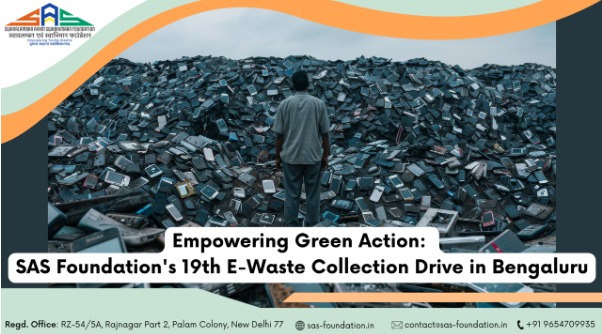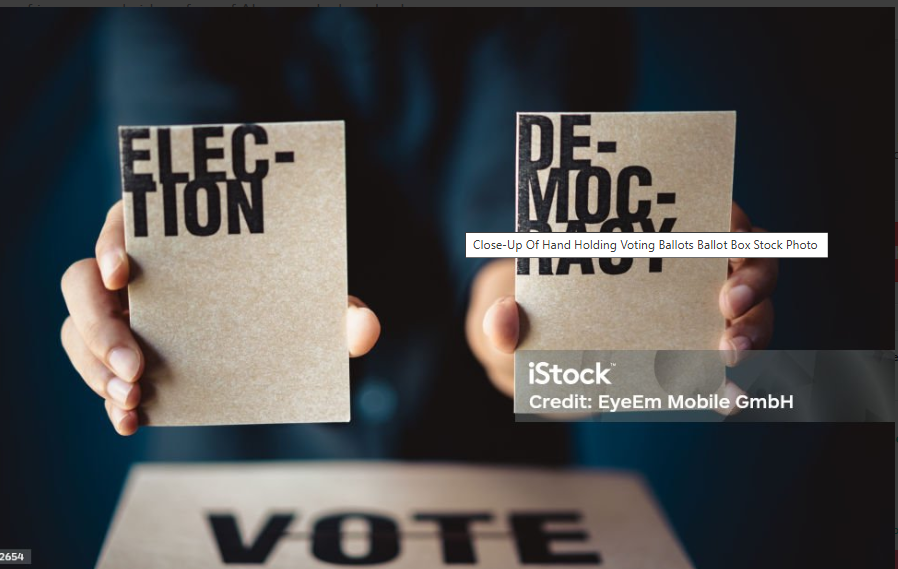Empowering CSR Through Digital Storytelling: Insights from the FORE School Workshop
In the ever-evolving landscape of Corporate Social Responsibility (CSR), the power of storytelling and digital engagement has emerged as a vital force in driving visibility, collaboration, and impact. Recently, the Swavalamban Avam Swabhimaan Foundation (SAS Foundation) had the incredible opportunity to participate in a transformative workshop on “Creating an Impact of CSR Initiatives through Social Media,” hosted by FORE School of Management, New Delhi.
Led by two stalwarts in the field — Dr. Shallini Taneja and Dr. Rakhi Tripathi — the session was a deep dive into the crucial intersection of CSR partnerships, strategic communication, and the growing influence of digital platforms in social development.
The Objective: Strengthening the CSR-NGO Connect
The workshop was attended by representatives from some of India’s most impactful nonprofits — including SAS Foundation, HelpAge India, REACHA, Sukalp Foundation, Deepalaya, Utkrishta Foundation, ETASHA Society, Aahan Foundation for Social Change, and Salaam Baalak Trust Delhi. Together, we explored actionable strategies to enhance CSR outcomes through stronger collaboration, transparency, and digital innovation.
Dr. Shallini Taneja, Associate Professor at FORE and a well-known expert on CSR regulations, shared crucial insights on how NGOs can more effectively navigate the CSR ecosystem, especially within the framework of Section 135 of the Companies Act, which mandates CSR contributions from eligible companies. She emphasized the importance of NGOs developing strong corporate partnerships, supported by robust documentation, legal awareness, and outcome-based reporting.
She also addressed persistent challenges — from funding cycles and proposal writing to audit and compliance — and urged NGOs to align their efforts with the Sustainable Development Goals (SDGs) to increase credibility and long-term impact.
The Digital Advantage: Powering Change with Social Media
As the conversation shifted to the digital realm, Dr. Rakhi Tripathi took center stage. A researcher and strategist in digital communications, she emphasized how social media, when used strategically, can be a game-changer for NGOs.
Dr. Tripathi highlighted that platforms like LinkedIn, Instagram, and Twitter are no longer just places for announcements — they are engagement ecosystems. With the right mix of storytelling, analytics, and authenticity, organizations can increase stakeholder trust, mobilize support, and even attract CSR partnerships.
She broke down the steps to build a data-driven content strategy, focusing on:
Defining your social purpose
Identifying your target audience
Using analytics to guide storytelling
Leveraging multimedia (photos, videos, infographics)
Aligning digital content with broader CSR themes
Her real-world case studies of successful NGO campaigns further proved that visibility is not vanity — it is influence. The message was clear: in today’s digital-first world, your impact needs to be seen to be scaled.
Key Takeaways for SAS Foundation
For SAS Foundation, this workshop was both enlightening and empowering. Our representatives, Dr. Nitin Saini (Secretary) and Ms. Jyotsana Sinha, found immense value in the practical frameworks and collaborative spirit that the event fostered.
Here are some of the key takeaways we’re excited to integrate into our strategy:
Strengthening Corporate Dialogue
We aim to deepen our engagement with corporate partners by crafting more strategic, measurable, and compliance-aligned proposals.Enhancing Impact Reporting
Transparency and reporting aren’t just about numbers — they’re about stories backed by data. We’ll be updating our reporting formats to better reflect outcomes, not just activities.Elevating Digital Presence
We’re committed to building a more consistent, visually impactful, and story-led social media presence that reflects the heartbeat of our work across education, environment, and community empowerment.SDG Mapping and Alignment
Going forward, all our flagship programs — whether it’s e-waste recycling or youth education — will be explicitly mapped to one or more UN SDGs, making our impact clearer and globally aligned.Peer Learning and Networking
The interactions with fellow NGOs sparked new ideas and potential collaborations. Sharing space with such seasoned organizations was a great reminder that collective impact comes from shared learning.
A Symbol of Growth and Sustainability
In a thoughtful gesture at the conclusion of the event, each participant received a plant sapling — a powerful symbol of growth, nurturing, and sustainability. This small but meaningful gift reinforced the idea that impact, much like a plant, needs the right soil (strategy), care (collaboration), and sunlight (visibility) to thrive.
Looking Ahead: Turning Learning into Action
With renewed energy and insight, SAS Foundation is committed to taking forward the lessons from this workshop. We recognize that impact is no longer limited to the field — it must also be amplified online, where stories reach thousands, inspire supporters, and engage partners.
We’re grateful to FORE School of Management, Dr. Shallini Taneja, and Dr. Rakhi Tripathi for their leadership and to our fellow NGO participants for their honesty, wisdom, and dedication to creating a better India.
Final Thoughts
This workshop wasn’t just a training — it was a call to action. A call to evolve, adapt, and lead in an increasingly digital and socially conscious world. As we return to our work with new tools and perspectives, one thing is certain: the future of social impact lies at the intersection of purpose and digital power.
We look forward to continuing this journey — through partnerships, innovation, and storytelling that inspires change.
Stay Connected
Want to see how we integrate these strategies into our initiatives?
👉 Follow us on LinkedIn and subscribe to our newsletter for regular updates.
📩 Let’s collaborate for impact — one story, one campaign, and one sustainable step at a time.










